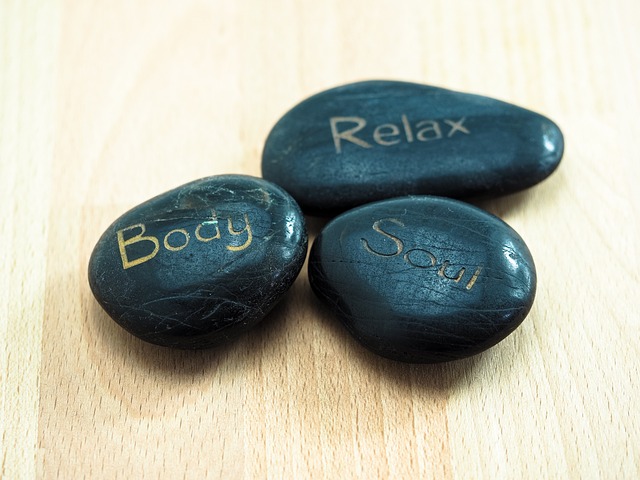Sleep is a powerful tool for athletes, acting as an active process for muscle repair and growth hormone release, enhancing mental resilience strategies, focus, and decision-making abilities. Techniques like mindfulness meditation and deep breathing exercises promote relaxation and improve sleep quality, facilitating better recovery and peak performance. Creating a cool, dark, and quiet bedroom with quality bedding and minimizing electronic exposure helps optimize sleep. Prioritizing consistent quality rest strengthens the body's natural sleep cycle, enhancing mental resilience and overall well-being.
Optimizing sleep is a powerful tool for enhancing recovery and building strength. In today’s fast-paced world, understanding the science behind sleep’s role in athletic performance and overall well-being is crucial. This article delves into effective strategies to boost mental resilience, create ideal sleep environments, and integrate consistent rest routines into your daily life. By implementing these practices, you can unlock your body’s potential for rapid recovery and peak physical strength.
- Understanding Sleep's Role in Recovery and Performance
- Mental Resilience Strategies for Quality Rest
- Creating an Optimal Environment for Sleep
- Incorporating Sleep into Your Daily Routine for Long-Term Strength
Understanding Sleep's Role in Recovery and Performance

Sleep plays a pivotal role in recovery and enhancing athletic performance, often overlooked yet crucial for athletes striving for peak condition. It’s not just about resting; it’s an active process where the body repairs and rejuvenates itself. During sleep, muscles undergo repair, growth hormones are released, and cognitive functions consolidate, all of which contribute to improved physical and mental resilience strategies.
Optimal sleep isn’t merely a luxury but a necessity for athletes. It supports better muscle recovery, enhances focus, and improves decision-making abilities. Understanding the science behind sleep’s impact on the body can empower athletes to develop effective mental resilience strategies, ensuring they’re not just physically prepared but mentally equipped to perform at their best.
Mental Resilience Strategies for Quality Rest

Mental resilience strategies play a pivotal role in achieving quality rest and optimal recovery. In today’s fast-paced world, stress and anxiety can significantly impact our ability to unwind and fall into a deep sleep. Developing mental resilience involves cultivating a strong mindset that enables individuals to cope with challenges and maintain a sense of calmness. Techniques such as mindfulness meditation, deep breathing exercises, and cognitive reframing help reduce mental clutter and promote relaxation. By integrating these practices into your nightly routine, you can enhance your overall mental well-being, making it easier to let go of the day’s stresses and drift off to sleep.
Moreover, mental resilience strategies foster a positive relationship with sleep. Regularly practicing mindfulness or deep breathing can signal to your brain that it’s time to wind down, thereby improving sleep initiation and quality. These techniques help regulate emotional responses and reduce the cognitive load that often keeps us awake at night. As a result, individuals become better equipped to recover from physical exertions, consolidate memories, and perform at their best when facing the next day’s challenges.
Creating an Optimal Environment for Sleep

Creating a restful and supportive environment is key to optimizing sleep, which in turn enhances mental resilience strategies. This involves ensuring your bedroom is cool, dark, and quiet. Invest in quality bedding and pillows that provide comfort and proper spinal alignment. Minimize exposure to electronic devices before bed by turning them off or using blue light filters, as the artificial light they emit can disrupt your natural sleep-wake cycle. Additionally, establishing a consistent bedtime routine helps regulate your body’s internal clock, making it easier to fall asleep and enjoy deeper, more restorative sleep.
Furthermore, consider factors like maintaining a cool room temperature (around 65°F or 18°C) and keeping the bedroom free from distractions like TVs or work-related items. Creating a dedicated space for sleep signals your mind that it’s time to wind down, preparing you for a more peaceful and rejuvenating slumber.
Incorporating Sleep into Your Daily Routine for Long-Term Strength

Incorporating consistent sleep into your daily routine is a powerful mental resilience strategy for enhancing recovery and building long-term strength. Our bodies, particularly our brains, need quality rest to rejuvenate and prepare for the challenges of the day ahead. By prioritizing sleep, we support optimal brain function, improved cognitive performance, and better decision-making abilities—all vital components for navigating life’s demands.
This strategy involves establishing a regular sleep schedule, creating a relaxing bedtime routine, and ensuring your sleep environment is conducive to rest. Avoiding stimulants before bed, limiting screen time, and maintaining a cool, dark, and quiet space can significantly enhance the quality of your sleep. Over time, these practices strengthen your body’s natural sleep-wake cycle, leading to improved mental resilience and overall well-being.
By understanding the vital role sleep plays in recovery and performance, implementing effective mental resilience strategies, optimizing your sleep environment, and integrating consistent sleep routines into your daily life, you can significantly enhance your overall well-being and strength. Mental resilience strategies, when combined with a conducive sleep environment and routine, empower individuals to achieve restorative sleep, thereby unlocking their full potential for optimal physical and mental health.
